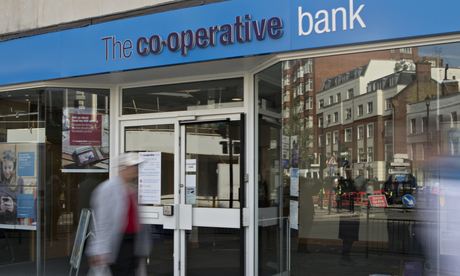Franchising, retail, business

19/04/2014
Co-op bank is planning to sell farms and pharmacies to raise money but they need a capable board to hold management to account
The interim chief executive of the Co-op did not mince his words. Last year had been "disastrous" and the "worst" in the 150-year history of the group. Chief executives rarely use language of this sort. Most annual statements are either self-preening or bland in the extreme.
In this case, Richard Pennycook's tough talk is entirely justified. The Co-op bank has been to the edge of the abyss. Operating profit in the trading businesses is down 71% in the past three years. The Co-op has broken bank covenants. In the financial markets, its debt has junk-bond status. Sales and profits are down in the grocery business.
What shines out from the accounts is just how badly run the Co-op has been. The group's loyal members might think that as a mutual it does things differently and better than a plc, but the report shows it to have been just another appallingly run institution.
Its former chief executive, Peter Marks, bought Somerfield with a hefty £1.6bn price tag because he wanted to be a big grocer, ranking alongside Morrisons. But as Tesco's results showed this week, retailing is a cut-throat sector where a cyclical downturn has compounded the problems caused by structural change in the industry. The Somerfield investment has been written down by £226m and 60% of the floorspace is being sold off. The Co-op now has 645 shops either standing empty or rented out to others, some for less than the Co-op is handing over in rental payments. The acquisition was a turkey.
To make matters worse, Marks also wanted to run a big bank. So he bought the Britannia building society and wanted to buy up Lloyds. The Britannia deal brought with it thousands of bad loans. The upshot was that the Co-op bank nearly went to the wall last year and accounted for £2.1bn of the group's £2.5bn loss in 2013.
It was more like Sir Fred Goodwin at RBS than a soberly run mutual. Pennycook now has three priorities. The first is to reduce the Co-op's debts, up from £600m to £1.4bn in the past five years and would stand at £1.7bn had the group not finessed a sale and leaseback arrangement for its swanky new HQ – rated the greenest office building in the world. The second is to invest in its core businesses – retailing, funeral services and insurance – which are performing reasonably in parts.
The third is to change the way the group is run, using as a template the reforms proposed by Paul Myners.
Turning the Co-op round will be hard. The group is planning to sell farms and pharmacies to raise money to reduce indebtedness and to invest in the core businesses. Pennycook is confident the sales will raise hundreds of millions of pounds, but given that potential buyers know the state of the Co-op's finances this may prove optimistic. If so, the cash raised will be spread too thinly.
Then there is the Co-op Bank, which needs another £400m of capital. To maintain its 30% stake the Co-op would need to stump up another £120m, increasing its already high debt levels.
According toThursday's documents the Co-op is now valuing the bank at £735m, with the Co-op's 30% stake worth £221m. As financial analyst Louise Cooper says: "So holders of the debt injected £1.5bn of capital into a business which is now worth, according to the Co-op Group, just £735m, half what the investors put in. And now they are now being asked for an additional £400m. That is a tough sell."
But non-participation would mean its stake in the bank would fall below 20%, allowing other shareholders, should they so wish, to deviate from the bank's ethical principles.
Last but not least, there is the need for a more capable board that is able to hold management to account.
Next month Co-op members have to decide whether they want to be run by professionals or amateurs. If they choose wrongly, it is hard to see the Co-op lasting until the end of the decade let alone for another 150 years.
Fonte: theguardian.com